<center>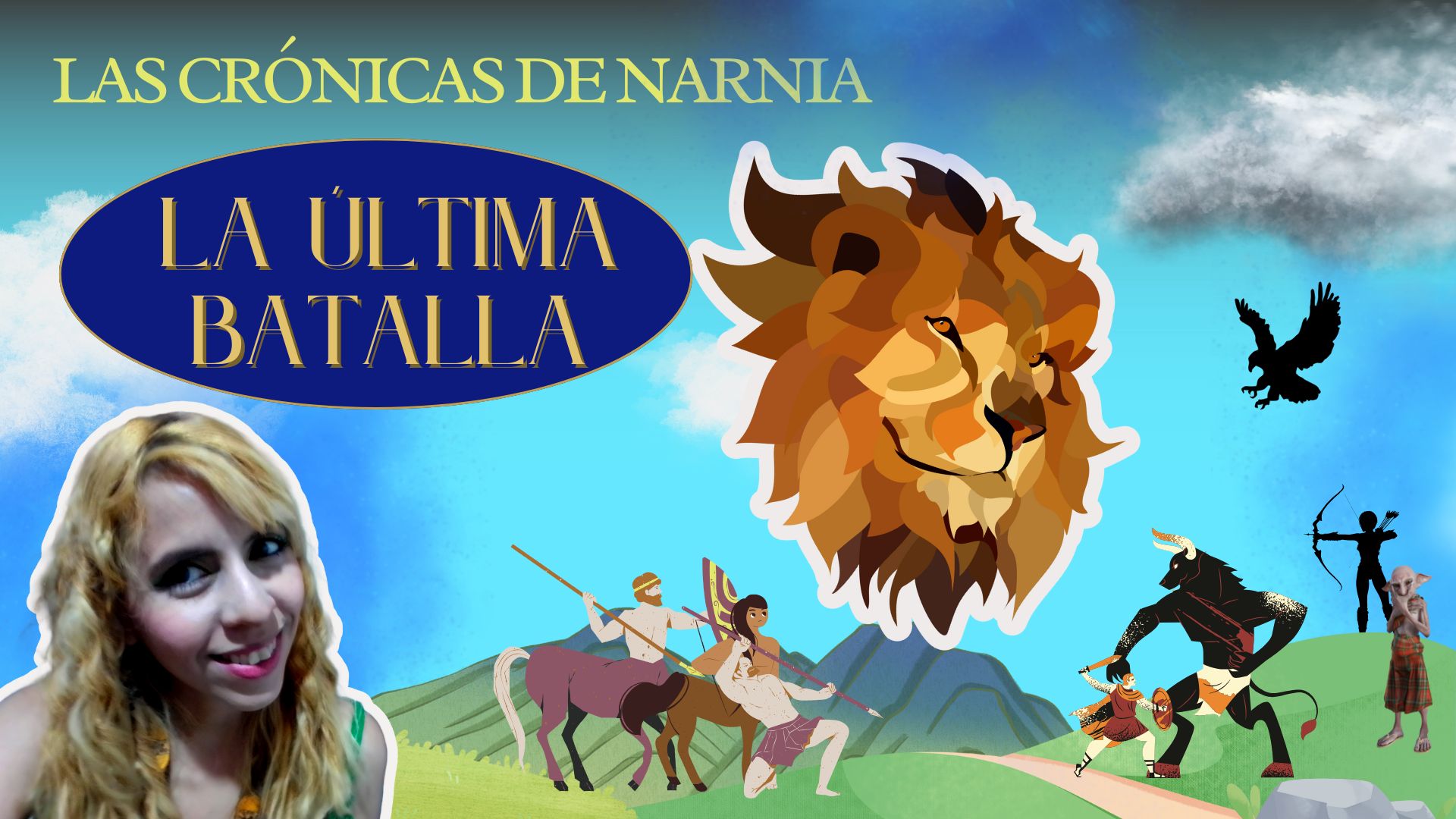</center>
<center>(Cover designed by me in canva editor)</center>
>Portada diseñada por mi en el editor de Canva
<div class=text-justify>
<p>Finally we come to the last of the Narnia books and in my opinion the best and most emotional, really when I read it I had an accumulation of emotions that made me reflect even more than the previous books and that is why I consider it a jewel of literature worthy of analyzing in depth, but first let's start with a brief summary.
>Finalmente llegamos al último de los libros de Narnia y en mi opinión el mejor y el más emotivo, de verdad que cuando lo leí tuve un cúmulo de emociones que me hizo reflexionar aún más que los libros anteriores y por eso considero que es una joya de la literatura digna de analizar a profundidad, pero antes iniciemos con un breve resumen.</p></div>
<center><h1>Overview/Resumen</h1></center>
<div class=text-justify>
<p>Narnia is being destabilized by a dark version of Aslan, or so it seems, but in reality it is a cunning and Machiavellian monkey named Shift, who after finding the skin of a common lion had a talking donkey friend of his (Puzzle) use it to trick all the Narnians, this of course unleashes chaos, even the Calormenes were cutting down and burning talking Narnian trees and mistreating their horses. The monkey says he is Aslan's spokesman and gives the most absurd orders in his name until the real Aslan appears and all the children of Adam and Eve who were previously summoned to enter Narnia (from the first to the last), are again called for the last battle, the one that will define whether it is good or evil that will reign over Narnia forever.</p></div>
>Narnia está siendo desestabilizada por una versión oscura de Aslan, o al menos eso parece, pero en realidad se trata de un astuto y maquiavélico mono llamado Triquiñuela, que luego de encontrar la piel de un león común hizo que un burro parlante amigo suyo (Puzle) la usara para que engañara a todos los narnianos, esto desde luego desata el caos, incluso los calormenos estaban talando y quemando árboles narnianos parlantes y maltratando a sus caballos. El mono dice que es el portavoz de Aslan y da las órdenes más absurdas en su nombre hasta que el verdadero Aslan aparece y todos los hijos de Adán y Eva que antes fueron convocados a entrar a Narnia (Desde el primero hasta el último), nuevamente son llamados para la última batalla, la que definirá si es el bien o el mal el que reinará sobre Narnia por siempre.
<center><h1>Trailer</h1></center>
<center></center>
<center><h1>My Opinion/Mi Opinión</h1></center>
<div class=text-justify>
<p>At this point you all know that Narnia is full of biblical references that came from the deep faith of its author, C. S. Lewis, because The Last Battle, in my humble opinion, is nothing more than a reflection of the book Apocalypse of the bible, which tells us of a series of events that will happen before the great change, the earth must go through a process of total purification, and in that process will come the false prophets (Shift) This monkey is actually the representation of those who lack the necessary strength to carry out an action, but instead they have a brilliant and privileged mind that instead of using it for good, they use it for their own benefits, they are the kings of manipulation and deception, they take advantage of the good will or weakness of others, but what is worse, they do it in the name of God, or Aslan, in the case of Narnia, and here arises the dilemma (to believe or not to believe) How to avoid being manipulated then? How to know how to recognize the false prophets, those who claim to be chosen by God and who have a mouth full of honey to sweeten the words that in reality are full of poison? Well, the answer could be even less complex than we imagine, “common sense”.</p></div>
>A este punto ya todos ustedes saben que Narnia está llenísima de referencias bíblicas que provenían de la profundad fe de su autor, C.S Lewis, pues La Última Batalla, en mi humilde opinión, no es otra cosa más que un reflejo del libro Apocalipsis de la biblia, el cuál nos habla de una serie de acontecimientos que sucederán antes del gran cambio, la tierra debe pasar por un proceso de depuración total, y en ese proceso vendrán los falsos profetas (Triquiñuela) Este mono es en realidad la representación de aquellos que carecen de la fuerza necesaria para llevar a cabo una acción, pero en cambio tienen una mente brillante y privilegiada que en lugar de usar en función del bien, la emplean para beneficios propios, son los reyes de la manipulación y el engaño, se valen de la buena voluntad o de la debilidad de otros, pero lo que es peor, lo hacen en el nombre de Dios, o de Aslan, en el caso de Narnia, y aquí surge el dilema (creer o no creer) ¿Cómo evitar ser manipulados entonces? ¿Cómo saber reconocer a los falsos profetas, aquellos que dicen ser elegidos por Dios y que tienen la boca llena de miel para endulzar las palabras que en realidad están cargadas de veneno? Pues la repuesta podría ser menos compleja aún de lo que imaginamos, "sentido común"
<center>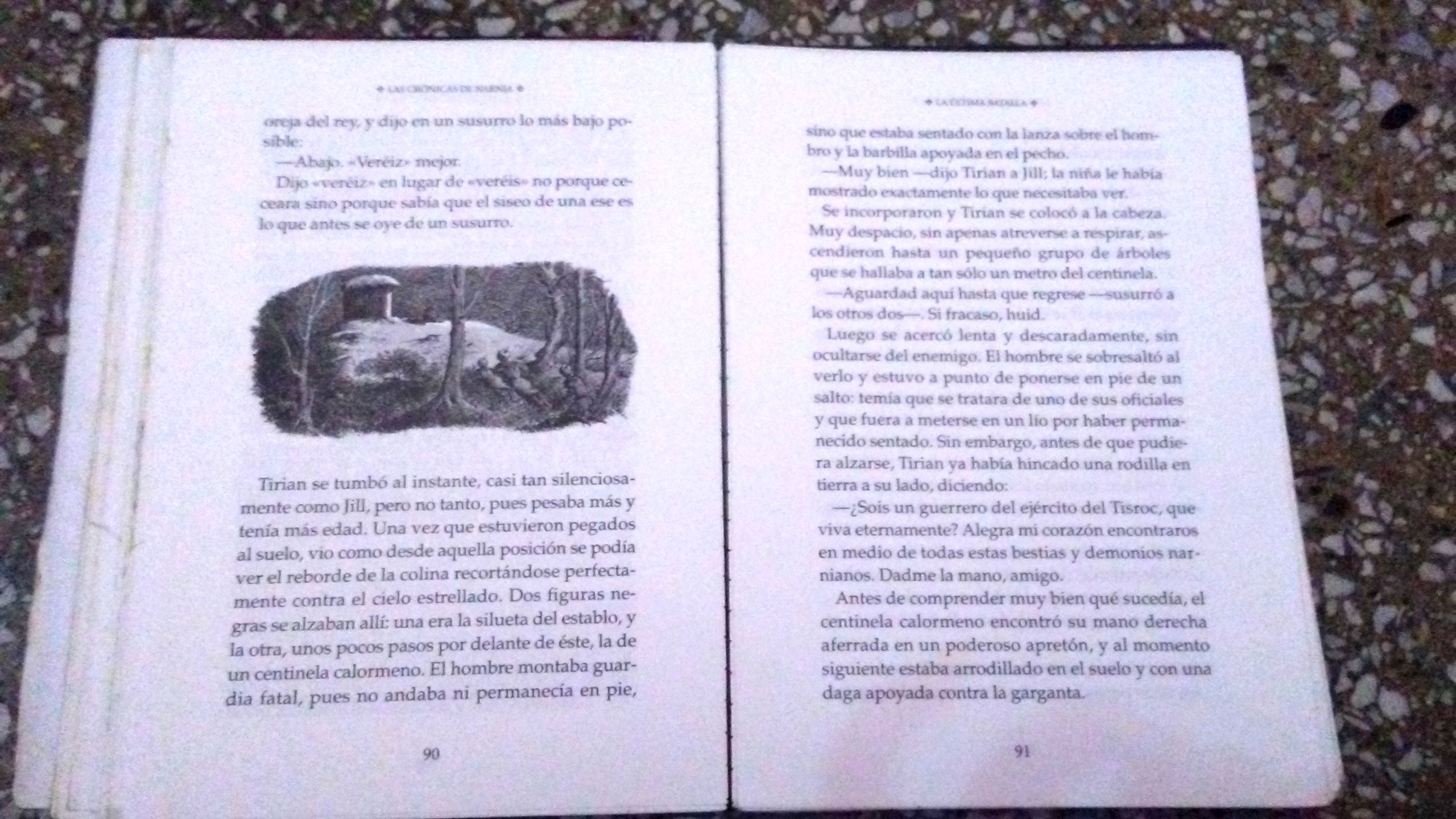</center>
<div class=text-justify>
<p>It happens the same with sects in real life, a leader who supposedly is a spiritual guide directs a group that lives on the margins of society and little by little is extending control through actions that are harmful to everyone. It is there where I consider that the big question should arise from common sense, would this really please God? To obey God you have to know him first, and that is where some of the characters in this story failed, they did not know Aslan well enough to understand that he would never have done anything against Narnia, that he would never ask them to do something that clearly went against someone's dignity, integrity or general welfare. Puzle on the other hand is the representation of weakness and innocence, but also of the deep desire for notoriety that is born precisely from that low self-esteem he has, for him wearing the lion skin magnifies him far above his original “value”, why? Because he gives too much importance to the perception of others, to the opinion that others may have about him, ignoring that the true value comes from his own essence, from his true feelings and intentions.</p></div>
>Sucede lo mismo con las sectas en la vida real, un líder que supuestamente es un guía espiritual dirige a un grupo que vive al margen de la sociedad y poco a poco va extendiendo el control mediante acciones que resultan perjudiciales a todo el mundo. Es ahí donde considero que debería surgir la gran pregunta desde el sentido común ¿Esto realmente le agradaría a Dios? Para obedecer a Dios hay que conocerlo primero, y fue allí donde fallaron algunos de los personajes de esta historia, no conocían lo suficientemente a Aslan como para entender que él jamás habría hecho nada en contra de Narnia, que nunca les pediría hacer algo que claramente atentaba contra la dignidad, integridad o bienestar en general de alguien. Puzle por otra parte es la representación de la debilidad e inocencia, pero también del deseo profundo de notoriedad que nace precisamente de esa baja autoestima que tiene, para él llevar la piel de león lo engrandece muy por encima de su "valor" original, ¿por qué? Por que le da demasiada importancia a la percepción ajena, a la opinión que los demás puedan tener sobre él, ignorando que el verdadero valor proviene de su propia esencia, de sus verdaderos sentimientos e intenciones.
<center>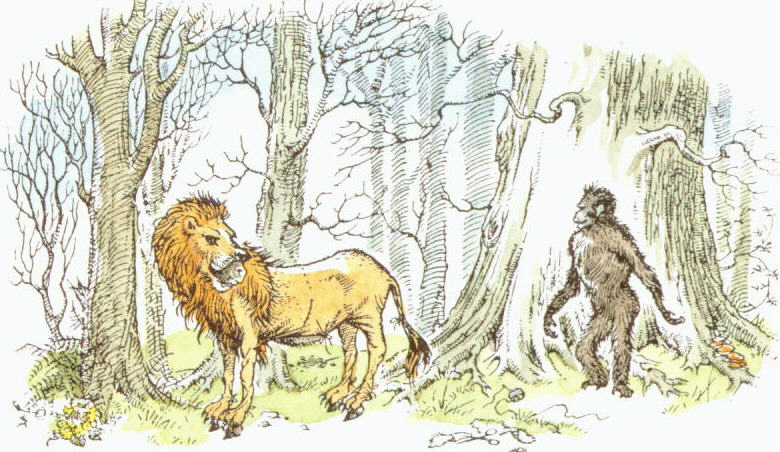</center>
<center>[Fuente](https://thetolkienian.wordpress.com/2019/11/29/what-would-aslan-do-the-case-of-shift-and-puzzle/)</center>
<div class=text-justify>
<p>But why did Aslan allow it? He could have prevented it, couldn't he? After all, they were acting on his behalf. I think Aslan let the monkey act on his own for a good while because that's the way it had to be, if God ties your hands to stop you from doing evil, he would be a dictator God, your intentions would still be dark and you would only not carry them out because you couldn't, not because you wouldn't want to. Obviously the monkey's evil actions brought very negative consequences to Narnia, but only in this way could it become clear who had true loyalty to the real Aslan and his ideals. Whoever serves Tash (the antithesis of Aslan, the Calormene God who represents evil) cannot serve Aslan because his interests go in the opposite direction, but Aslan will not force anyone to follow him or to act according to his designs, that is a decision of each one, in a very personal way.</p></div>
>¿Pero porqué Aslan lo permitió? Pudo evitarlo , ¿no? Al fin y al cabo estaban actuando en su nombre. Yo creo que Aslan dejó que el mono actuara por su cuenta por un buen tiempo porque así debía ser, si Dios ata tus manos para que no hagas el mal, sería un Dios dictador, tus intenciones seguirían siendo oscuras y solo no las llevarías a cabo porque no podrías, no porque no querrías hacerlo. Obviamente que las malas acciones del mono trajeron consecuencias muy negativas a Narnia, pero solo de esa manera podría quedar en evidencia quien tenía verdadera lealtad hacia el autentico Aslan y a sus ideales. Quien le sirve a Tash (la antítesis de Aslan, el Dios calormeno que representa la maldad) no puede servir a Aslan porque sus intereses van en sentido contrario, pero Aslan no obligará a nadie a seguirlo o a actuar según sus designios, eso es una decisión de cada quien, de manera muy personal.
<center>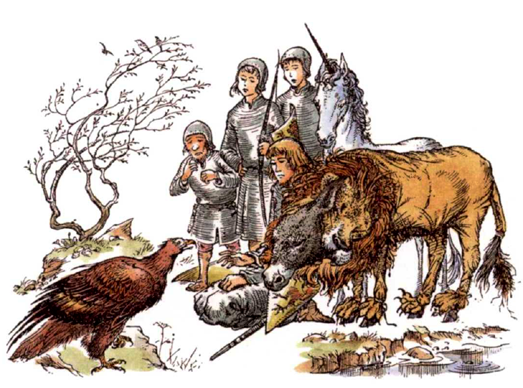</center>
<center>[Fuente](https://margot-quotes.livejournal.com/183338.html)</center>
<div class=text-justify>
<p>Regarding the way in which all the sons of Adam and daughters of Eve (including almost all the Pevensie brothers) re-entered Narnia, I know it caused division in the fandom because some thought it was fair, others thought it was absurd and for others (in which I include myself) it was just fine, because it was precisely here in this book where it became evident what Narnia really was, that although being far from this earthly and ephemeral world, it was completely real, on another plane, in another time but it was real. I won't give too many details about it so as not to spoil it for anyone who wants to read the book. As for Susan, I will only say that although the author's decision about what happened to her afterwards, to me personally it seems very accurate because there must be a representation of all kinds of people in the books, and she is one of those who are very attached to this earthly world, those people who even after having known God and having been faithful to Him, in the end let themselves be carried away by the ephemeral gratifications offered by the world in which we live, which leads them to oblivion, does not allow them to evolve and transcend, so inevitably that would leave them behind.
</p></div>
>Con respecto a la forma en la que todos los hijos de Adán e hijas de Eva (incluyendo a casi todos los hermanos Pevensie) volvieron a entrar a Narnia, sé que causó división en el fandom porque a unos les pareció justo, a otros absurdo y para otros (en los que me incluyo) simplemente estuvo bien, porque precisamente fue aquí en este libro donde se evidencio lo que Narnia era en realidad, que aunque estando lejos de este mundo terrenal y efímero, era completamente real, en otro plano, en otro tiempo pero era real. No daré demasiados detalles al respecto para no spoilear a nadie que quiera leer el libro. En cuanto a Susan, solo diré que aunque la decisión del autor acerca de lo que sucedió con ella después, a mí en lo personal me parece muy acertada porque debe existir una representación de todo tipo de persona en los libros, y ella es de esas que son muy apegadas a este mundo terrenal, esas personas que aún después de haber conocido a Dios y de haberles sido fiel, al final se dejan llevar por las gratificaciones efímeras que ofrece el mundo en el que vivimos, lo cuál los lleva al olvido, nos les permite evolucionar y trascender, así que inevitablemente eso los dejaría atrás.
<center>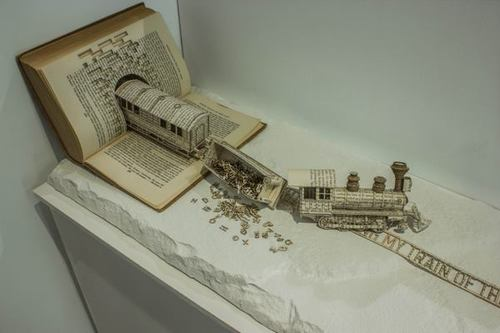</center>
<center>[Fuente](https://evenatraitormaymend.wordpress.com/tag/susan-pevensie-after-the-last-battle/)</center>
<div class=text-justify>
<p>Anyway, friends, for me it has been a great pleasure to have been able to review and analyze in depth these seven books that make up the saga of The Chronicles of Narnia, now you already know what my opinion is, but if you have the opportunity to read them I invite you to do it so you can also generate your own opinion about the characters and facts. For me Narnia is a masterpiece worthy of transcending, it is a saga that you can read with the innocence of a child and get carried away by the magical fantasy of a surreal world, but when you read it as you grow up, when you are already an adult, without ceasing to perceive that magical essence that makes it special, you find in this saga a great depth that invites you to reflection and introspection 😉 Thank you all for reading my post. Blessings ✌️🤗😊</p></div>
>En fin, amigos, para mí ha sido un gran placer haber podido reseñar y analizar a profundidad estos siete libros que conforman la saga de Las Crónicas de Narnia, ahora ustedes ya conocen cual es mi opinión, pero si tienen la oportunidad de leerlos los invito a hacerlo para que así ustedes también puedan generar su propia opinión respecto a los personajes y hechos. Para mi Narnia es una obra maestra digna de trascender, es una saga que puedes leer con la inocencia de un niño y dejarte llevar por la mágica fantasía de un mundo surrealista, pero cuando la lees al crecer, cuando ya eres un adulto, sin dejar de percibir esa mágica esencia que la vuelve especial, encuentras en esta saga una gran profundidad que te invita a la reflexión y a la introspección 😉 Gracias a todos por leer mi post. Bendiciones ✌️🤗😊
<center>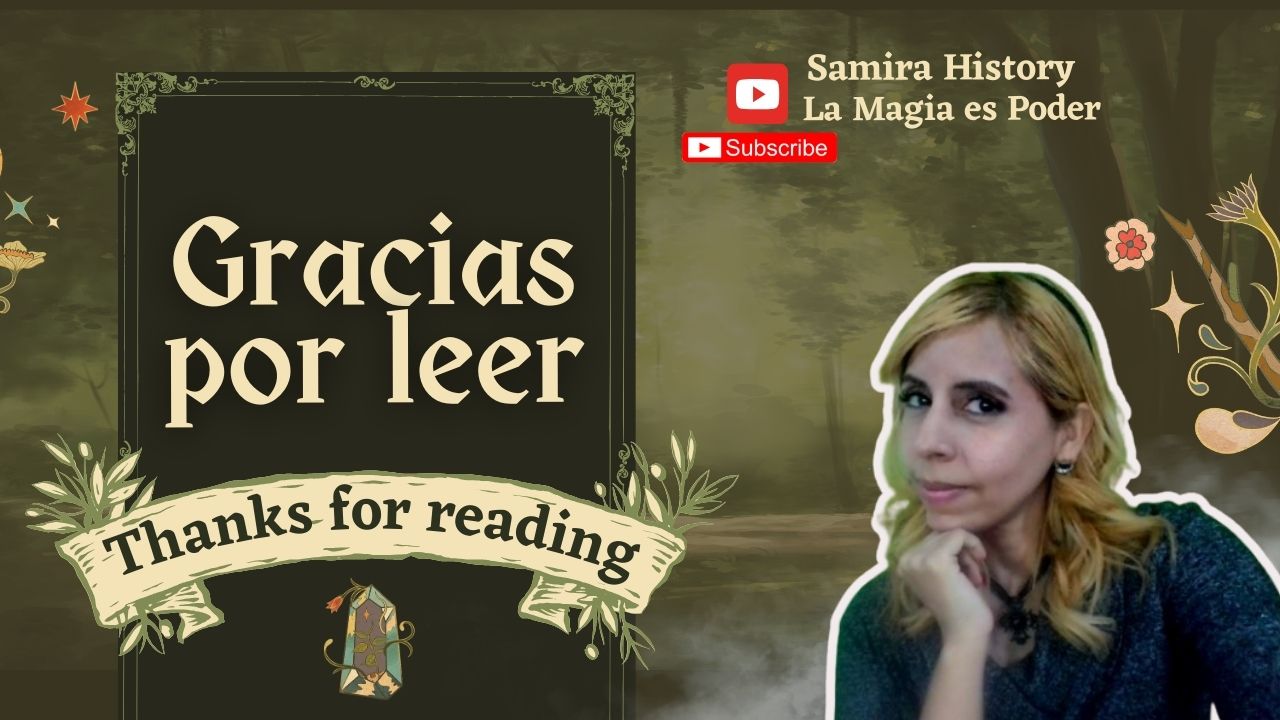</center>
<center>(Image designed by me in canva editor)</center>
>Imagen diseñada por mi en el editor de Canva.
<div class=text-justify>
<p>The unsourced photographs in this post are my own, taken with my LGK4 Lit cell phone.</p></div>
>Las fotografías que no tienen fuente en este post son de mi propiedad, las tomé con mi teléfono celular LGK4 Lite
 hiveblocks
hiveblocks